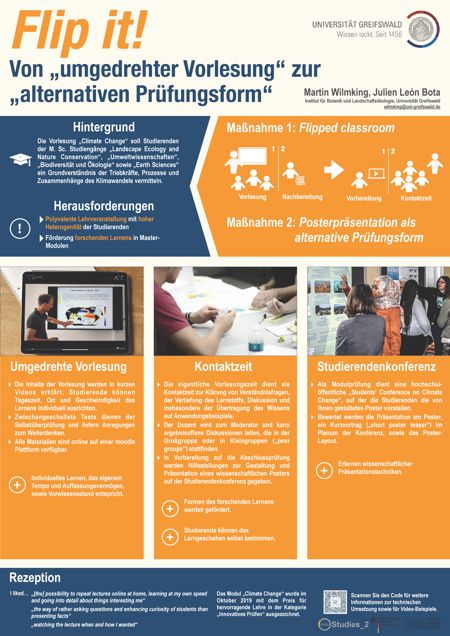19th of December 2019: New project - Wood Finds from the Middle Ages Can Help Adapt our Forests to Climate Change
Forest researchers, foresters, landscape ecologists and archaeologists are performing joint research to promote conservation.
Data gained from archaeological wood finds is to be collected, structured and evaluated in a climate and vegetation archive up until the end of 2022. The data will help to adapt today’s forests to climate change. The project ‘ArchaeoForest – Medieval Forest Composition as a Foundation for Forestry Adaptations to Climate Change’ is being realised by Prof. Martin Wilmking’s research group and Dr. Tobias Scharnweber from the University of Greifswald’s Institute of Botany and Landscape Ecology together with the State Office of Archaeology Sachsen and the public enterprise Sachsenforst.
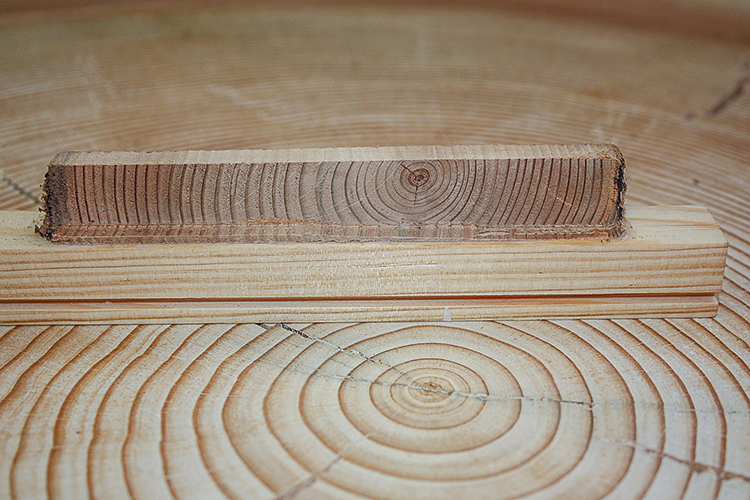
October 2019: Award for the best poster
Julien Léon Bota and Prof. Martin Wilmking have won the award for the best poster at the UPtoDATE: University Teaching in the Digital Age conference. The best poster was chosen by the audience directly during the closing event online using tweedback. The theme of the poster was the "Flipped classroom" concept: Flip it! Von „umgedrehter Vorlesung“ zur „alternativen Prüfungsform“
16-20 of October 2019: 9th Bonn Humboldt Award Winners' Forum
Prof. Martin Wilmking, Dr. Alba Anadon-Rosell and Dr. Mario Trouillier attended the 9th Bonn Humboldt Award Winners' Forum held in Bonn. Researchers from all over the world, both members and non-members of the Alexander von Humboldt Foundation, attended the meeting, which featured the “Humboldtian Sciences”, such as geology, anthropology, ecology and evolution. This year is the 250th anniversary of Alexander von Humboldt’s birthday. The forum provided plenty of opportunities for networking. Scientific lectures by outstanding researchers were the core of the meeting, but attendees also had the pleasure to attend a lecture by Andrea Wulf, the author of the book “The Invention of Nature”, a highly acclaimed and awarded biography of Alexander von Humboldt. While Martin was a member of the scientific organizing committee, Alba and Mario presented her recent work as scientific posters.
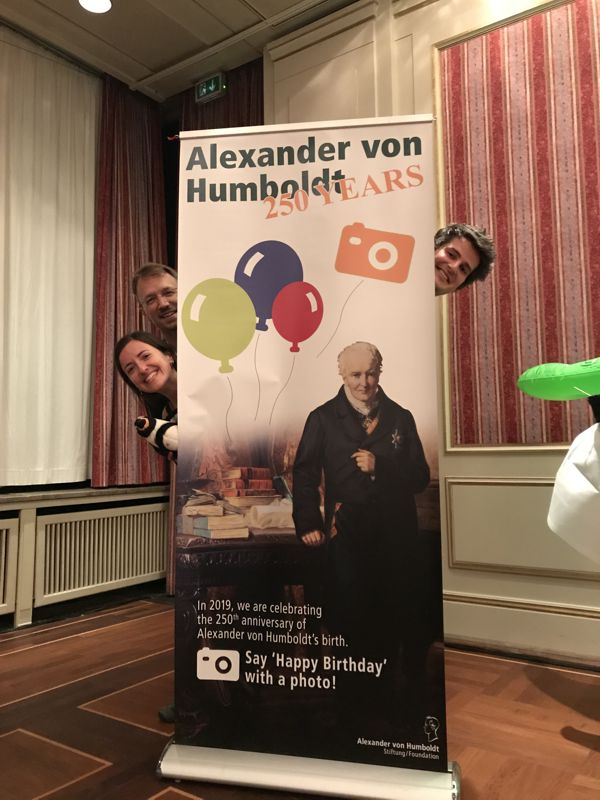
24 and 25 of September 2019: Broadcasts on NDR 1 Radio MV
On Tuesday the 24th and Wednesday the 25th of September, NDR 1 Radio MV broadcasted in their program “Forum aktuell” discussions on the topics “Problempatient Wald” (Forest – Problem patient) and “Die Folgen des Klimawandels” (The consequences of climate change), which included interviews with Martin Wilmking.
The broadcast from the 25th of September is available at (in German language): https://mediandr-a.akamaihd.net/download/podcasts/podcast4432/AU-20190925-1637-1900.mp3
September 2019: Teaching Prices 2019
Also in 2019 the University Greifswald gave awards for Excellent Teachers. In addition to Prof. Dr. Cordelia Heß (Historical Institute) and Prof. Dr. Roland Rosenstock (Theology Faculty), Prof. Martin Wilmking was awarded with the 2,000 Euro prize. He received a prize in the category “Innovative Tests”:
8th of July 2019: The "poster presentation" as an alternative form of examination
Modern teaching and learning research is increasingly calling into question the classical frontal lecture, which aims to impart pure knowledge. Particularly in polyvalent courses, this lecturer-centred form of teaching prevents individual learning and makes research-based learning more difficult. Prof. Martin Wilmking and the students of the module "Climate Change" show how polyvalent teaching can be combined as a flipped classroom with an alternative examination method that favours research-based learning.
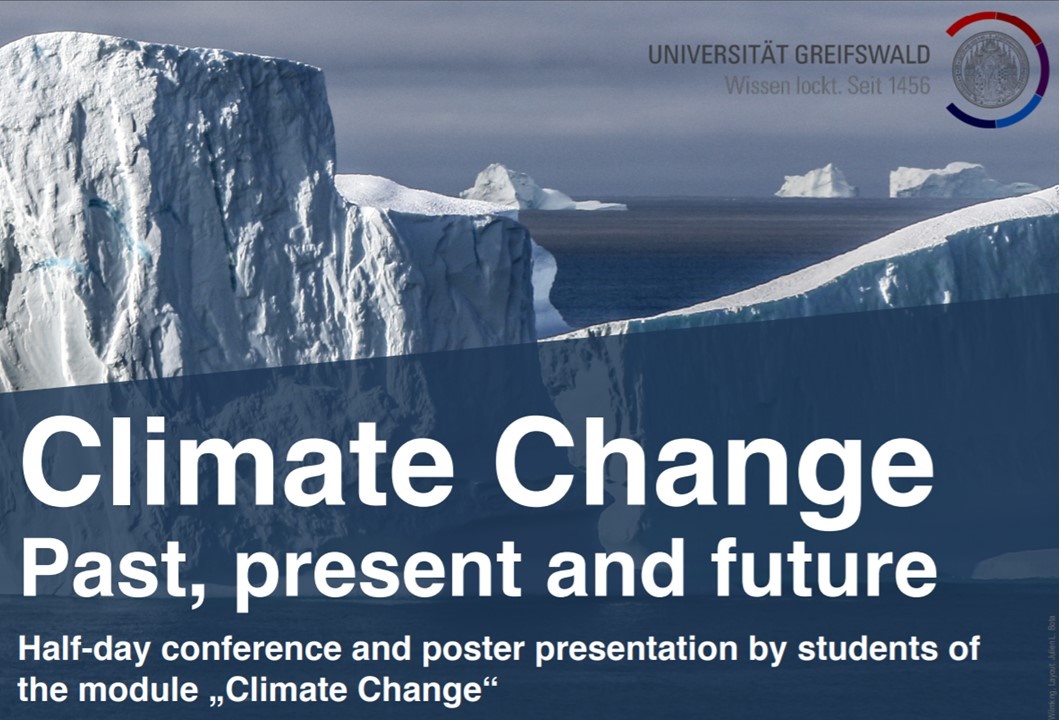
20th of June 2019: Humboldt Research Fellowship
Dr. Anadon-Rosell has been awarded a Humboldt Research Fellowship for postdoctoral researchers. She will be hosted for a two-year period by Prof. Martin Wilmking and his team in the working group “Landscape Ecology and Ecosystem Dynamics” at the Institute of Botany and Landscape Ecology. Alba Anadon-Rosell is from Barcelona, Spain, and will be working on the phenotypic plasticity of clonal shrubs in tundra ecosystems.
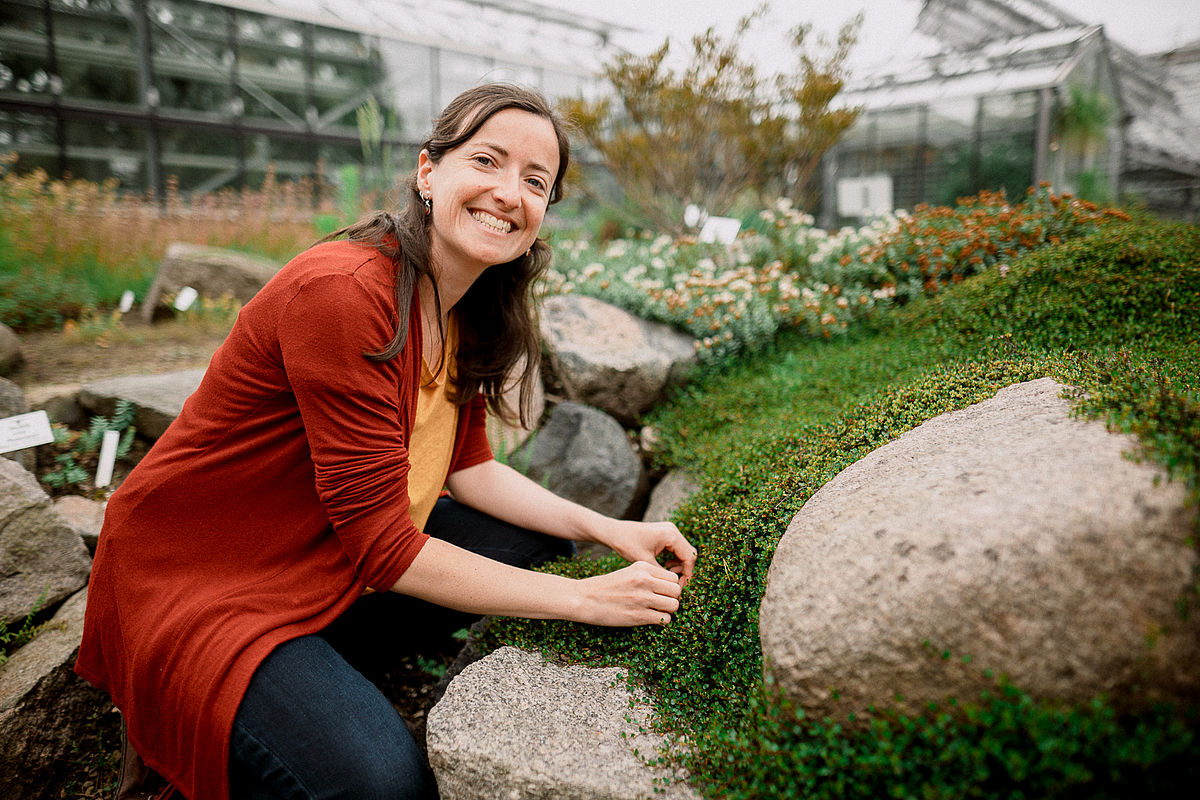
21st of February 2019: New study removes the fertilizer effect from climate reconstructions
At the end of February the article "Removing the no-analogue bias in modern accelerated tree growth leads to stronger medieval drought" by Tobias Scharnweber and other members of our working group appeared in Scientific Reports.
More information:
https://www.spektrum.de/news/der-duerre-sommer-2018-war-nicht-ungewoehnlich/1627190 (in German)
20th of February 2019: New project for digitalization in research
The State Excellence Program MV "Digitization in Research" supports the consortium "DIG-IT! Digitalisation of Natural Complexity to Solve Socially Relevant Ecological Problems" under the direction of Prof. Martin Wilmking. Over the next 3 years, researchers will have 2 million euros at their disposal to develop a methodological toolbox that can independently capture and categorize ecological image and audio data using machine learning techniques (deep convolutional neural networks). Partners are the Fraunhofer Institut für Grafische Datenverarbeitung Rostock (Prof. Uwe von Lukas), Biomathematik (Prof. Mareike Fischer) and working groups of the Institut für Botany und Landscape Ecology (Profs. Joosten, Kreyling, Wilmking) and the Zoological Institute and Museum (Prof. Gerald Kerth).
Extract from the jury vote:
"The DIG-IT! project aims to address urgent ecological issues through the use of digital technologies, with the evaluation of primary data posing a particular challenge. (...) The jury is convinced of the scientific excellence of the project. The idea of developing an ecological toolbox is particularly impressive. It also appreciates the approach of docking onto already existing excellent research alliances such as WETSCAPES and RESPONSE [DFG Research Training Group "Biological RESPONSEs to Novel and Changing Environments"] and using their findings above all to promote young scientists.

